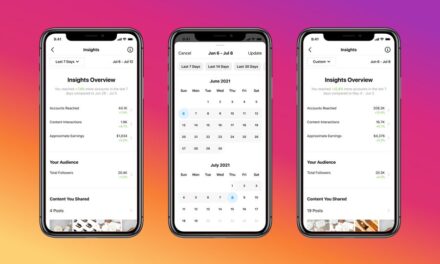Repost from: https://www.marketingweek.com/2018/02/15/niche-lifestyle-brands-increasing-mass-market-appeal/
A decade ago they were defined as ‘niche’, but today health and wellness brands have been catapulted into the mainstream thanks to the popularity of nutrient-rich diets and ‘clean eating’.
From meat substitute Quorn to organic tea purveyor Pukka, brands in the wellness space are benefiting from a growing consumer desire to live healthier lives. These brands are keen to shake off the tag of exclusivity once associated with the wellbeing sector in favour of an accessible, inclusive approach firmly focused on the mass market.
The growth strategy pursued by these wellbeing brands chimes with the thinking of marketing professor Byron Sharp. In his 2010 book ‘How Brands Grow’, Sharp questions the notion that niche brands sell to a small base of buyers who are “unusually loyal”.
Instead, he suggests they are essentially failing brands as they have a small number of infrequent buyers, while brands with a higher market share have more buyers who buy them more often.
As a result, he contends that supposedly niche brands are more likely to grow by “sophisticated mass marketing” – in other words, increasing their market penetration – rather than targeting a tight segment of loyal customers.
The approach is evident in Tesco’s entry into the category of plant protein foods, with the launch in January of 100% vegan-friendly meals, on sale in 600 stores.
Known as Wicked Kitchen, the range includes wraps, sandwiches, salads and 20 different ready meals. Available exclusively at Tesco, the brand is owned by the supermarket’s chef-director of plant based innovation, Derek Sarno, and his brother Chad. Far from being aimed exclusively at vegans, Wicked Kitchen is Tesco’s play for ‘flexitarians’, meat reducers who eat a mixed diet of meat, vegetarian and vegan food.
Flexitarians are likewise important to Quorn, which counts 83% of its consumers as meat reducers. The brand is focused on heavyweight, mass market marketing to drive reach, explains head of brand marketing UK and international, Alex Glen. The rise in vegan and flexitarian lifestyles is credited with driving 16% global growth for Quorn in 2017, which puts the company on track to become a billion dollar business by 2027.
In 2011 the brand reframed itself around healthy eating, a message which it amplified in 2014 by working with Olympian Mo Farah. Adopting the ‘aggregation of marginal gains’ philosophy embodied in British Olympic successes, Quorn made the connection between the brand and ambassadors like Farah, Adam Peaty and Kate Richardson-Walsh. The celebrity athlete endorsement strategy helped Quorn drive brand growth by 14% last year.
The company has also focused on showing how its product fits into everyday life as a family meal-time staple. Taking this message to TV saw Quorn experience a 30% increase in base sales after an advert aired promoting its nuggets in September.
Powered by movements such as #MeatFreeMonday, Quorn also hopes to tap into emerging food trends, explains Glen. “The brand is very focused on two big trends. One that has really developed over the past two years is meat reduction, specifically of red or processed meat,” he says.
“The second is sustainable eating. We’re looking into the future and the growing realisation by consumers of the impact of intensive meat production and consumption.”
Ambitious growth
Growing consumer awareness of the health benefits of low sugar foods and drinks has helped tea brand Pukka cross over from niche organic tea brand into a £30m business, which was acquired by Unilever in September.
The Bristol-based brand aims to be a “mainstream herbal wellbeing company”, which is why the Unilever acquisition was so attractive, explains head of communications Tom dePass.
“Unilever allows us to accelerate our mission because of its access to markets through its established sales networks, which will help ensure our teas and supplements are in more shops across the globe. And of course, as a leader in social and environmental change, Unilever fully embraces Pukka’s beliefs,” dePass adds.
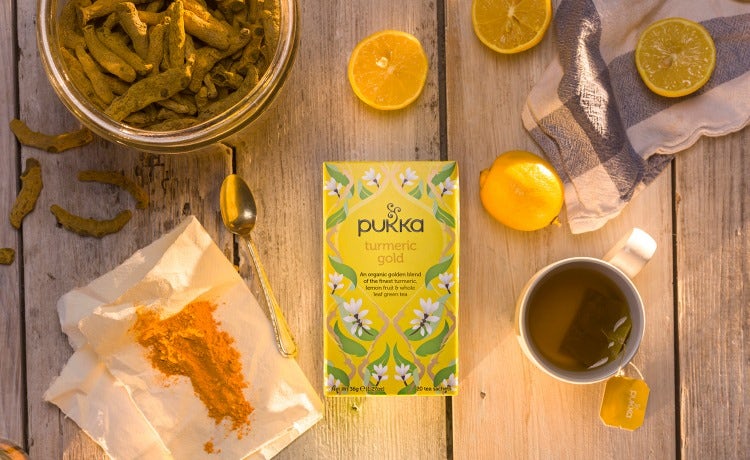
Pukka claims its 40-strong tea portfolio has become “synonymous with wellbeing” by opting for “zeitgeist herbs” like turmeric and popular ingredients such as green matcha tea. Introduced in spring 2016, Pukka’s Turmeric Gold tea entered the top 20% of the fruit and herbal category in the UK, while a new Turmeric Active blend is set to launch this spring.
To feed consumer demand for holistic solutions, Pukka is expanding its product range into four seven-day kits combining herbal teas with supplements, developed to improve concentration, calm an anxious mind, aid sleep and protect against seasonal infections.
Extending the proposition has also been key to the sustained success of Canadian athletic apparel brand Lululemon. The label’s wider lifestyle ecosystem spans complementary in-store mindfulness sessions and large-scale events such as the SweatLife Festival in London.
Lindsay Claydon, director of brand and community EMEA, credits Lululemon’s community-led approach with giving the brand a distinctive edge that has resonated with the mass market.
“Our stores operate through a decentralised model, empowering teams at a local level to create authentic relationships and experiences personalised to their community,” she explains.
“Constant connection and conversation with guests is a fundamental point of difference for our brand. We are at the forefront of a behavioural shift towards communities seeking to pursue more active, mindful lifestyles.”
The power of diversification
A willingness to diversify their product lines is helping health and wellbeing brands maintain an ongoing conversation once January’s good intentions are over.
Glen explains that while January and February are typically Quorn’s biggest months, the uplift is not as large as some may assume given that the wide product range helps the brand stay relevant throughout the year.
“We can provide a category within a category, with lots of different meal options from snacking to ingredients to centre-of-plate like burgers. This means we can be relevant all year and we tend to adapt our marketing plans to focus on retailer themes throughout the year,” says Glen.
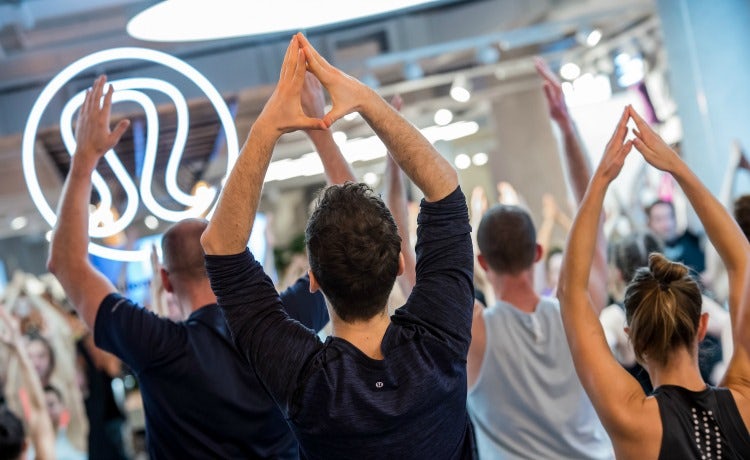
January is also a big month for protein ball company Bounce, which chose to steer consumers away from faddish New Year’s resolutions with its recent social campaign ‘Simple Swaps’, aimed at encouraging accessible ways to achieve a balanced diet.
The release of Bounce’s first major campaign in September, spanning tube posters, branded buses and taxis, marked the brand’s intention to reach the mass market. A recent rebrand also saw the company strip back the product information on its packs, reinforce the protein content and add a photo of the protein ball in order to provide greater clarity.
Bounce has also expanded its product offering with the introduction of its shareable Energy Bites and V Life balls, a dedicated vegan range in five flavours. The brand made a splash around its V Life launch with a ‘Veganuary’ themed calendar, featuring a motivational quote and V Life ball behind each window.
“We’re trying to be innovative with our V Life range, which is more health market orientated,” explains communications manager, Ellie Rose.
“Because the protein bites are a more indulgent flavour profile and a shareable format, we’re looking to get them into the grocery multiples. We’re not going to ignore our core health food market. Planet Organic and Whole Foods Market are very key to us, but obviously we want to keep striving and be talking to the larger grocers.”
Taking an accessible approach to fitness using a multichannel marketing mix anchored by TV has helped wearable tech company Fitbit broadcast its message to people who may not necessarily be open to health and fitness, explains Fitbit marketing director, Lucy Sheehan.
“We want to show people that you can incorporate fitness into your life and we’ve done really culturally relevant partnerships [with organisations] such as Sport Relief [in 2016]. Partnerships in these culturally relevant spaces where it doesn’t feel intimidating really helps us connect with everyday fitness,” she explains.

Sheehan recognises that building a sense of community is key to making Fitbit part of an everyday lifestyle. Last year the brand introduced a social and community feed on its app, which currently comprises 20 million people and a further 4.7 million who have joined groups within that feed.
The collection itself is designed to appeal to a mass market, ranging from fashion focused pieces with interchangeable straps to high tech models like the Ionic smartwatch which boasts sensors capable of monitoring the user’s heart-rate and conditions like sleep apnoea.
Democratising wellbeing
In the startup world, a number of brands are seeking to democratise wellbeing by making healthy products accessible to everyone.
Dash Water takes misshapen lemons and cucumbers that are not a high enough grade to be bought by supermarkets and turns them into a zero-calorie flavoured water. The sustainable water brand describes itself as a combination of wellness and lifestyle, aiming to offer a credible alternative to high sugar drinks on the mainstream market.
“I don’t necessarily see the brand as a wellness, health brand,” explains co-founder Jack Scott.
“I see it as more of a lifestyle brand that offers something credible that tastes good and doesn’t have any of the artificial sweeteners or sugar. We want to be accessible to all. We’re not selling a £6 juice that only certain people can buy.”
Dash Water has deliberately opted for a mixture of stockists from Planet Organic and Farmdrop to Selfridges and Amazon to match its “everyday premium” positioning.
“Starting out, our sales strategy was to concentrate on some key retailers that created a little bit of a buzz around the brand,” Scott explains.
“The nature of making a product is expensive to begin with because you’re not making large volumes. However, going forward part of our strategy is to make a product that is accessible to all or ‘everyday premium’.”
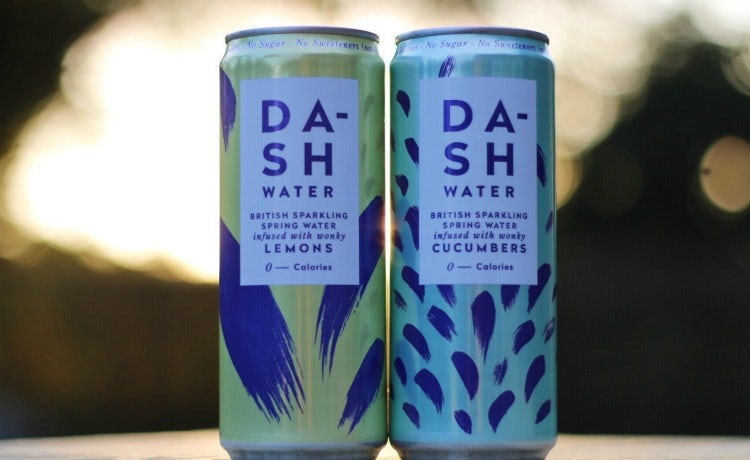
Accessibility is also at the heart of pop-up wellbeing dining experience Little Bee Kitchen. Launched in the south London area, the pop-up creates bespoke, nutritionally balanced set menus hosted at guest restaurants. Run by nutritional therapist Chloe Bannerman and wellbeing advocate Mary Anderson-Ford, Little Bee Kitchen aims to democratise healthy eating.
“We help the restaurant put together an interesting menu of the latest foods people are eating, but maybe don’t know how to cook,” Anderson-Ford explains.
“It’s about putting together really unusual ways of cooking that people don’t really think about. We generally try to hook up with a charity at the same time that makes money from the ticket price and any additional drinks sales, as well as selling merchandise like tote bags and tea towels.”
On a daily basis, Little Bee Kitchen posts homemade meal inspiration to Facebook and Twitter in order to keep the community engaged between its events.
“Social media is so important. Twitter and Facebook seem to be the best way to connect with people for a business as young as Little Bee Kitchen which doesn’t have all that much money to spend on the marketing and PR,” says Anderson-Ford.
Cracking a new market
Going from market leader to a relative startup is the challenge being faced by Aussie fitness wear brand Lorna Jane, which is looking to expand into the UK. Established in 1989, the brand has 140 stores across Australia and describes itself as a technical fashion label, offering the performance credentials of anti-pilling, anti-fade fabric with the relaxed look of loungewear.
The brand has adopted a wholesale model to drive brand awareness, combined with investment in social, influencers and bloggers. Lorna Jane plans to hit the UK mass market through wholesale tie-ups with department store groups, online retailers and stores like JD Sports, which it launched with in late 2017.
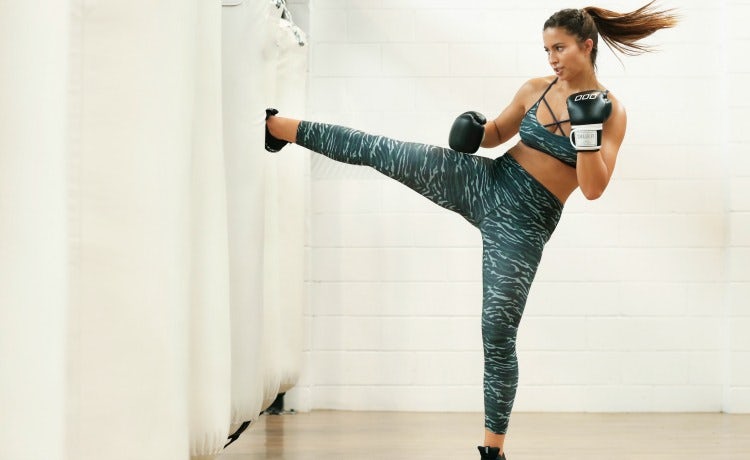
With plans to debut on Asos in three month’s time, sales director Claire Lamb explains that Lorna Jane wants to stretch from a commercial price point to premium retailers like Selfridges, Net-a-Porter and Harvey Nichols, as well as setting up its own retail locations.
“Stealing market share from others is not easy, but I think we’re niche in what we offer as it’s that technical element with that fashion credibility. We are a price point above mainstream brands, but I think people are getting board of the standard brands and they’re looking for something different,” says Lamb.
She believes that having continuous collections with new product coming through on a quick turnaround is crucial in a market like the UK where consumers shop regularly. It will also help them to engage customers throughout the year.
While all these brands may have launched with a very specific target market in mind, as consumers’ appetite for healthy lifestyle brands rises, there is opportunity for these brands to grow too, if they can find the right message to reach the masses.







